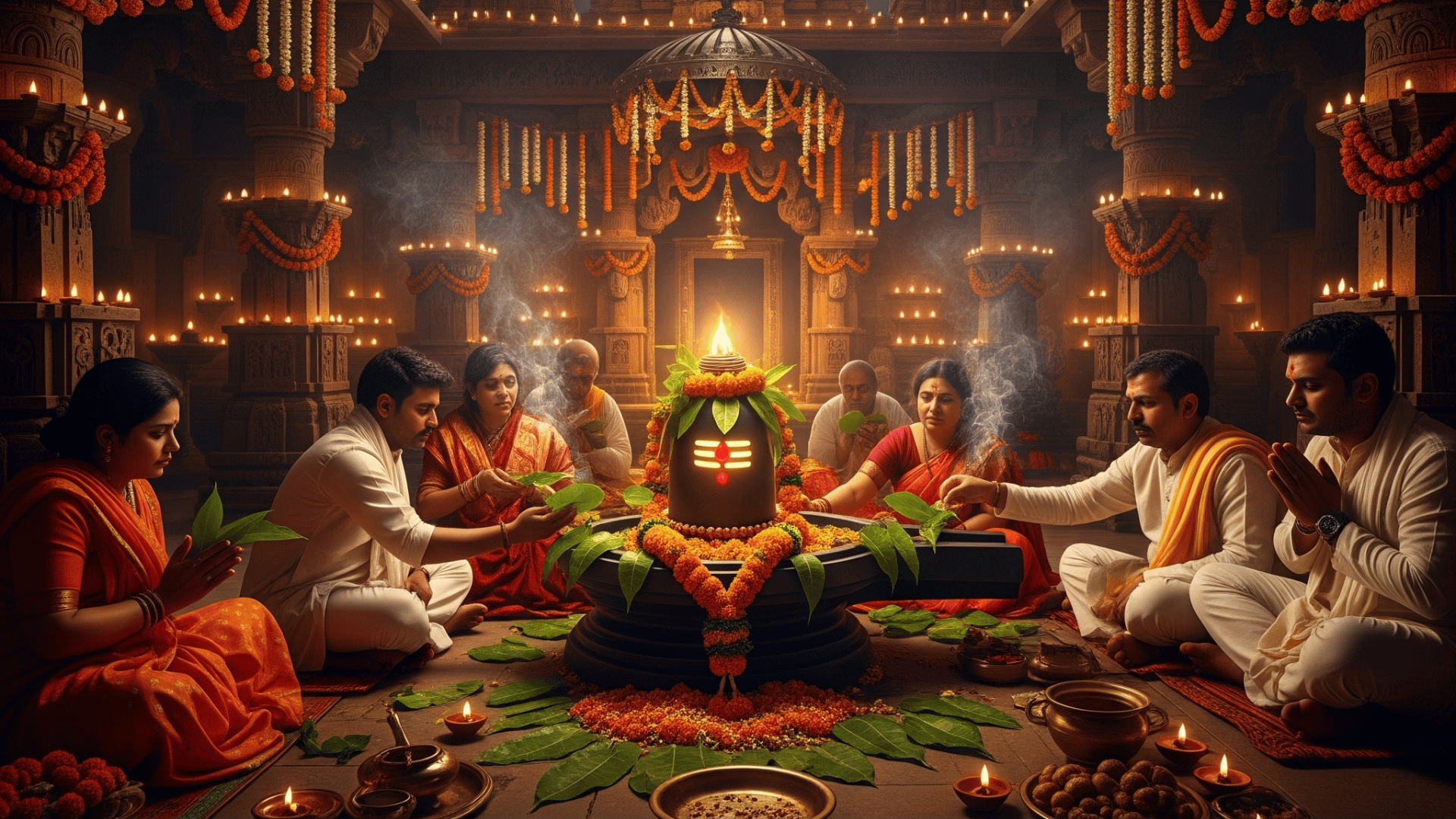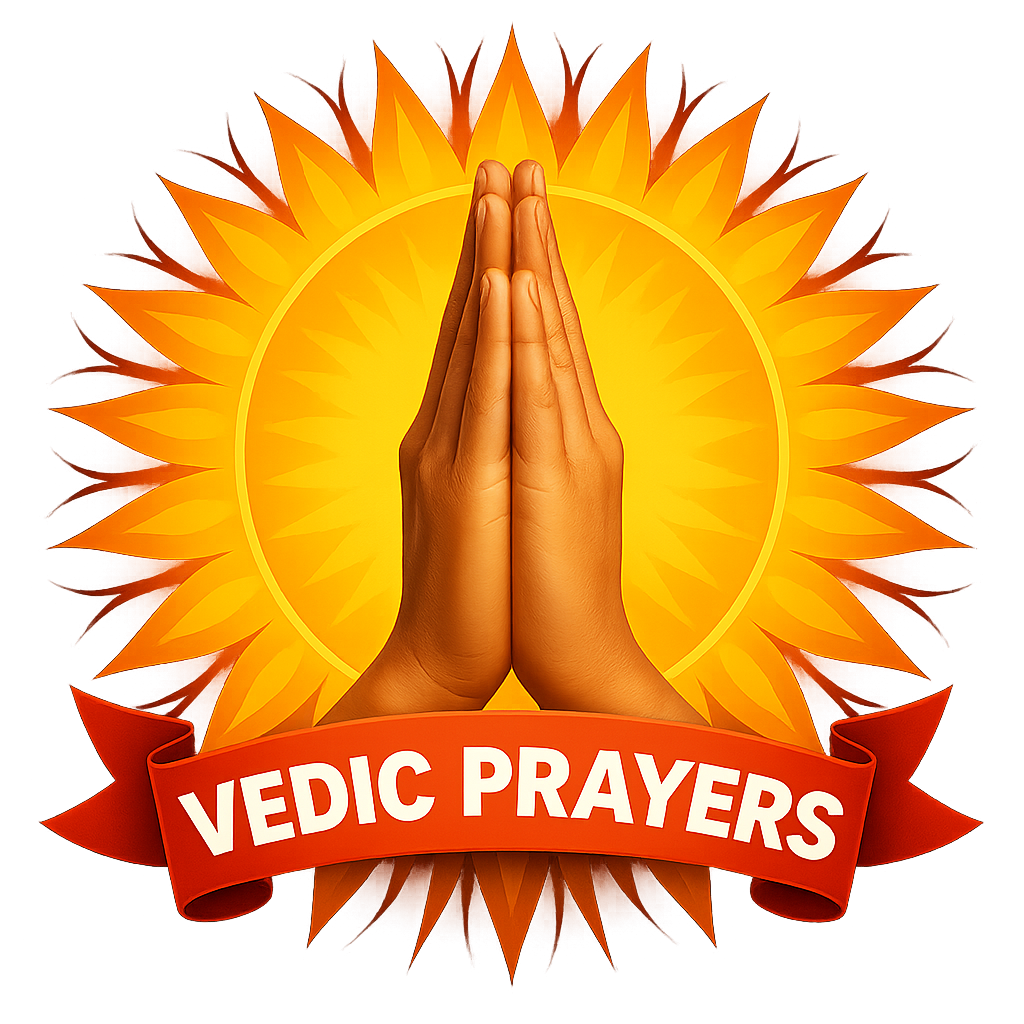
In ancient times, there lived a hunter named Chitrabhanu. Every day he went into the forest to hunt animals, and in this way, he supported his family. He was also indebted to a wealthy moneylender of the town, but due to poverty, he was unable to repay his loan. One day, in anger, the moneylender imprisoned Chitrabhanu inside a Shiva monastery. Coincidentally, that day was Masik Shivratri.
Because of Shivratri, devotional singing and hymns were being performed in the Shiva temple throughout the night. The imprisoned hunter Chitrabhanu spent the night listening to these bhajans and kirtans with great joy. The next morning, the moneylender called him and asked for repayment. Chitrabhanu promised, “Respected sir, I will repay all your debt by tomorrow.” Hearing this, the moneylender released him.
After gaining freedom, the hunter went to the forest in search of prey, but since he had spent the whole night in confinement without food and water, he was tired and weak. While roaming far into the forest in search of prey, evening approached and the sun began to set. He thought, “Now I must spend the night here in the jungle.” But he had no prey to sell and no way to repay the moneylender.

Thirsty and tired, he reached a pond and drank water. Nearby stood a bel (bilva) tree, so he climbed it to rest. Beneath this very tree was a Shiva Lingam, hidden under leaves, which the hunter did not notice. Filled with worry about his debts and family, Chitrabhanu absentmindedly plucked bel leaves from the tree and kept dropping them down. By divine coincidence, all those leaves fell directly on the Shiva Lingam.
Since he had spent the whole day and night hungry and thirsty, unknowingly he was observing the Masik Shivratri fast.
After some time, a pregnant deer came to the pond to drink water. Seeing her, the hunter readied his bow and arrow. Just as he was about to shoot, the deer spoke:
“O hunter, do not kill me now. I am pregnant. If you kill me, two lives will be destroyed at once. Please allow me to give birth, then I will return to you and you may hunt me.”
Hearing this, Chitrabhanu lowered his bow and allowed her to go. As he pulled and released the bowstring, a few more bel leaves fell onto the Shiva Lingam, which became the first quarter of the night’s worship.
Later, another deer came out of the bushes. Overjoyed, the hunter aimed his bow again. But the deer pleaded:
“O hunter, I am newly married and searching for my husband. Let me meet him once, and then I will return so you may hunt me.”
Once again, the hunter let her go. As he drew and released his bow, some more bel leaves fell upon the Lingam, thus completing the second quarter of the night’s worship. By now, half the night had passed.

After some time, a doe with her young fawns came to drink water. The hunter quickly took aim, but the deer pleaded:
“O hunter, if you kill me now, my little ones will be orphaned. Let me first take them to their father, and then I will come back to you.”
The hunter at first laughed and said, “I have already lost my prey twice, I will not lose a third time.” But the deer replied:
“As you care for your children, I too care for mine. Allow me to fulfill my duty as a mother, and I promise to return.”
The hunter’s heart softened, and he let her go. In this way, while raising and lowering his bow again, more bel leaves fell on the Shiva Lingam, completing the third quarter of the worship.
Finally, a stag appeared. The hunter prepared to shoot, but the stag said humbly:
“O hunter, if you have killed my three wives and children, then kill me too, for without them I have no reason to live. But if you have spared them, then allow me to go and reunite with them. Afterward, I will return, and you may hunt me.”

Hearing this, the hunter realized the truth of the night’s events. The stag further said:
“My wives are bound by their word; they will surely return. If I die now, they too will not be able to keep their vow. Let me go and bring them here.”
The hunter agreed, and again some bel leaves fell onto the Lingam, thus completing the fourth and final quarter of the Shivratri worship.
Soon, the stag returned with all three does and their young ones. They stood before the hunter and said, “We have come back as promised. Now you may kill us.”
Seeing the truthfulness and purity of the animals, the hunter’s heart melted completely. His mind was filled with devotion. He threw away his weapons and decided never to hunt again.
The next day, he returned to town, borrowed some money from another person, repaid the moneylender, and then began to earn his living honestly through hard work.
When Chitrabhanu eventually died, the messengers of Yama (the god of death) came to take his soul, but the messengers of Lord Shiva drove them away. Chitrabhanu was then taken to Shiva Loka, attaining salvation and liberation.
Thus, by unknowingly observing the fast and worship of Masik Shivratri, even a poor hunter like Chitrabhanu achieved divine grace and liberation.
















